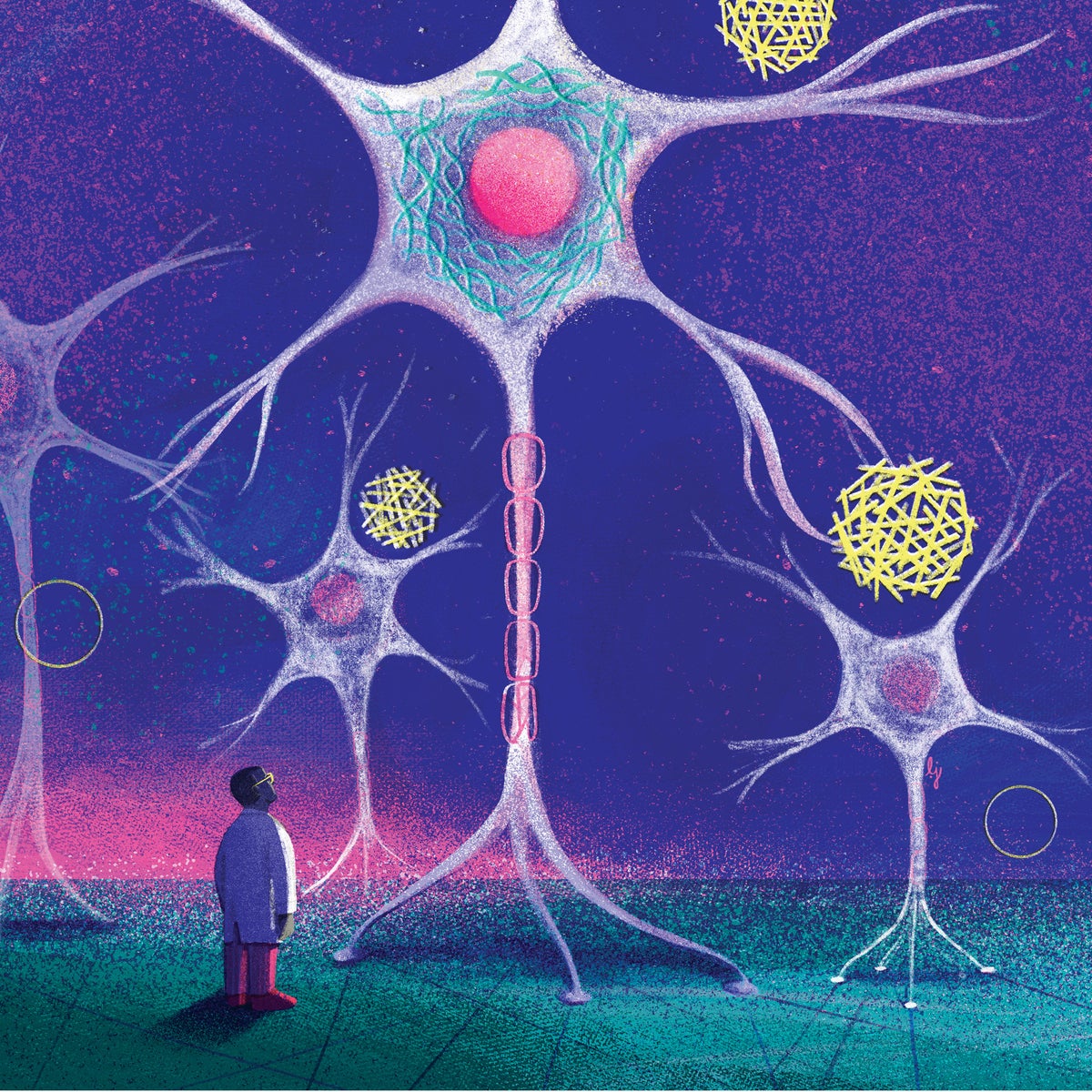
"But although there is so much researchers still don't understand about the disease and what drives it, scientists are making progress faster than ever before and providing patients and their families with options for both diagnosis and treatment. Over the past few decades researchers have begun to realize that Alzheimer's is more than the tangles of tau proteins and clusters of amyloid plaque that are the defining biological signs of the disease."
"Changes to daily habits, such as increased exercise and social interaction, better nutrition, and supplements, are another option to consider. Sara Harrison notes that although the results from studies are mixed, researchers hope that focusing on someone's day-to-day health can delay onset of the worst symptoms of dementia. Such improvements aren't available to everyone, however. Black Americans are twice as likely as white America"
A diagnosis of Alzheimer's disease often leads to years of uncertainty, grief and progressive cognitive decline. Researchers now view Alzheimer's as involving multiple biological mechanisms beyond amyloid plaques and tau tangles. More than 100 clinical trials are underway targeting diverse pathways to slow or halt disease progression. Therapies that break up amyloid plaques have received FDA approval and slowed decline in some people with early disease, but those drugs carry substantial risks and are not universally effective. Lifestyle changes such as exercise, social engagement, nutrition and supplements may help delay severe dementia symptoms, although study results are mixed. Racial disparities limit access to such improvements, with Black Americans disproportionately affected.
#alzheimers-disease #clinical-trials #amyloid-therapies #lifestyle-interventions #health-disparities
Read at www.scientificamerican.com
Unable to calculate read time
Collection
[
|
...
]